DICLOFENAC SODIUM ENTERIC-COATED TABLET - ORAL
PHONETIC PRONUNCIATION: (dye-KLOE-fen-ack SOE-dee-um)
COMMON BRAND NAME(S): Voltaren
GENERIC NAME(S): diclofenac sodium
Uses
USES: Diclofenac is used to relieve pain, swelling (inflammation), and joint stiffness caused by arthritis. Reducing these symptoms helps you do more of your normal daily activities. This medication is known as a nonsteroidal anti-inflammatory drug (NSAID). If you are treating a chronic condition such as arthritis, ask your doctor about non-drug treatments and/or using other medications to treat your pain. See also Warning section.
How to use DICLOFENAC SODIUM ENTERIC-COATED TABLET - ORAL
HOW TO USE: Read the Medication Guide provided by your pharmacist before you start using diclofenac and each time you get a refill. If you have any questions, ask your doctor or pharmacist. Take this medication by mouth with a full glass of water (8 ounces / 240 milliliters) unless your doctor directs you otherwise. Do not lie down for at least 10 minutes after taking this drug. If you experience stomach upset with this medication, you may take it with food, milk, or an antacid. However, this may slow absorption and delay pain relief, especially if you are not taking this medication on a regular schedule. Swallow this medication whole. Do not crush, chew, or break the tablets. Doing so can destroy the special coating on the tablet and may increase side effects. The dosage is based on your medical condition, response to treatment, and other medications you may be taking. Be sure to tell your doctor and pharmacist about all the products you use (including prescription drugs, nonprescription drugs, and herbal products). To minimize side effect risks (such as stomach bleeding), use this medication at the lowest effective dose for the shortest possible length of time. Do not increase your dose or take it more often than prescribed. For chronic conditions such as arthritis, continue taking it as directed by your doctor. Discuss the risks and benefits with your doctor or pharmacist. For certain conditions (such as arthritis), it may take up to 2 weeks of regular use before the full benefits of this drug take effect. If you are taking this drug on an "as needed" basis (not on a regular schedule), remember that pain medications work best if they are used as the first signs of pain occur. If you wait until the pain has worsened, the medication may not work as well. Tell your doctor if your condition worsens.
Side Effects
Precautions
Interactions
Overdose
Images
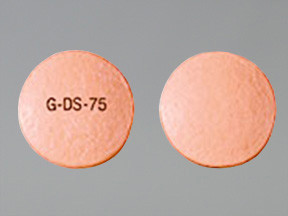
- color
- light pink
- shape
- round
- imprint
- G-DS-75
Reviews
Faq for DICLOFENAC SODIUM ENTERIC-COATED TABLET - ORAL
Diclofenac sodium enteric-coated tablet is a medication used to relieve pain and reduce inflammation. It belongs to a class of drugs called nonsteroidal anti-inflammatory drugs (NSAIDs). The enteric coating on the tablet helps protect the stomach and allows the medication to be absorbed in the intestines.
This medication is commonly used to treat conditions such as osteoarthritis, rheumatoid arthritis, ankylosing spondylitis, and menstrual pain.
It is usually taken with food, or as directed by your doctor. Follow the instructions on the prescription label and do not exceed the recommended dosage. Swallow the tablets whole, do not crush, chew, or break them.
Common side effects may include stomach pain, indigestion, heartburn, diarrhea, dizziness, and headache. If you experience any severe or persistent side effects, contact your doctor immediately.
It is important to inform your doctor about all the medications you are currently taking, including over-the-counter drugs, supplements, and herbal products. Some drugs may interact with diclofenac sodium, potentially affecting its effectiveness or increasing the risk of side effects.
Diclofenac sodium may increase the risk of heart attack, stroke, and serious gastrointestinal events such as bleeding or perforation. It is not recommended for individuals with a history of these conditions or those allergic to NSAIDs. Inform your doctor of any medical conditions you have before starting this medication.
It is not recommended to use diclofenac sodium during the last trimester of pregnancy or while breastfeeding. Consult your doctor for guidance and safer alternatives.
Consuming alcohol while taking diclofenac sodium may increase the risk of stomach bleeding or ulcers. It is advisable to limit alcohol consumption or avoid it completely while on this medication.
The onset of pain relief may vary from person to person. Some individuals may experience relief within a few hours, while it may take several days for others. Consult your doctor if you do not notice any improvement in your symptoms after a reasonable period.
Warning
WARNING: Nonsteroidal anti-inflammatory drugs (including diclofenac) may rarely increase the risk for a heart attack or stroke. This effect can happen at any time while taking this drug but is more likely if you take it for a long time. The risk may be greater if you have heart disease or increased risk for heart disease (for example, due to smoking, family history of heart disease, or conditions such as high blood pressure or diabetes). Do not take this drug right before or after heart bypass surgery (CABG). Also, this drug may rarely cause serious (rarely fatal) bleeding from the stomach or intestines. This effect can occur without warning symptoms at any time while taking this drug. Older adults may be at higher risk for this effect. (See also Precautions and Drug Interactions sections.) Stop taking diclofenac and get medical help right away if you notice any of the following rare but serious side effects: bloody or black/tarry stools, persistent stomach/abdominal pain, vomit that looks like coffee grounds, chest/jaw/left arm pain, shortness of breath, unusual sweating, weakness on one side of the body, sudden vision changes, slurred speech. Talk with your doctor or pharmacist about the risks and benefits of treatment with this medication.
Disclaimer
IMPORTANT: HOW TO USE THIS INFORMATION: This is a summary and does NOT have all possible information about this product. This information does not assure that this product is safe, effective, or appropriate for you. This information is not individual medical advice and does not substitute for the advice of your health care professional. Always ask your health care professional for complete information about this product and your specific health needs.
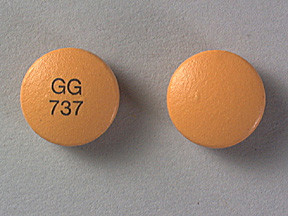
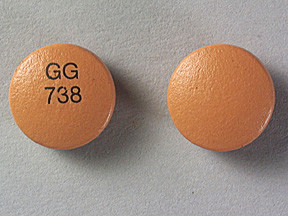
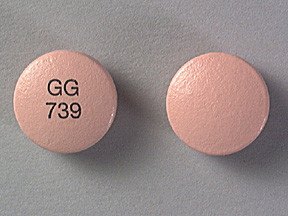
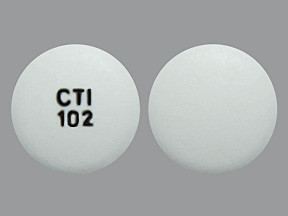
No Reviews Yet